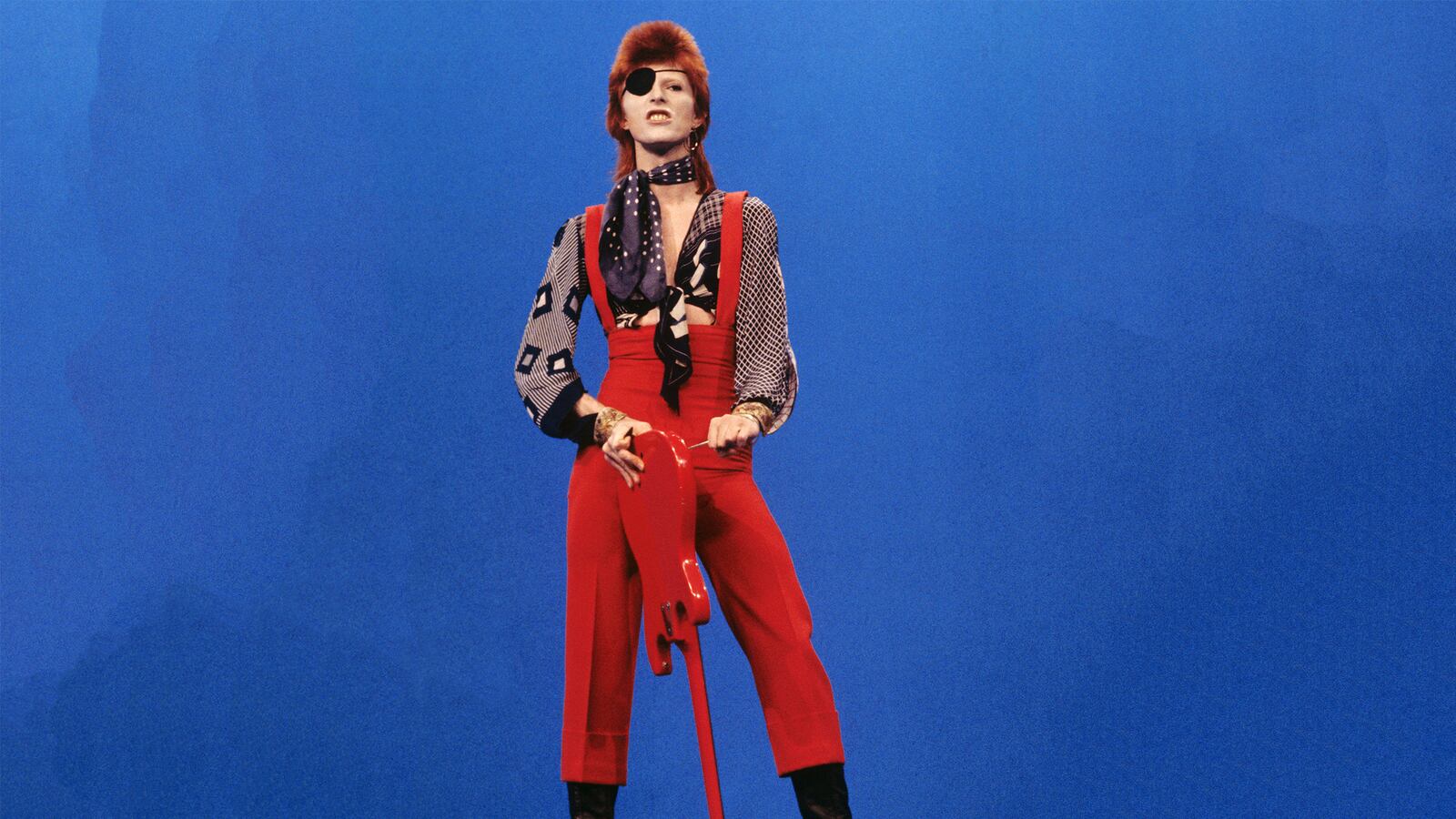Whenever someone famous and influential dies, particularly when that person is as influential as David Bowie, a schizophrenic cycle of mourning grips the Internet.
First come the shocked tweets and brief personal tributes. Then the thoughtful eulogies and remembrances by this famous person’s peers, mixed in with RIPs from people who didn’t know who he was before Facebook informed them that morning.
It’s often those in the latter category who then dig up dirt on the star, hell-bent on tearing down our cultural heroes the very day they pass away.
Indeed, while many celebrated David Bowie’s artistic genius yesterday as they did when he was alive, the vultures sniffed out every morally dubious incident from the rock star’s legacy, intent less on exposing Bowie the sexual revolutionary than Bowie the sexual predator.
It started on Twitter, as these things generally do, with queries and judgments about Bowie having sex with an underage woman, Lori Mattix, in the ’70s. Mattix was part of a well-known scene of teenage groupies in Los Angeles at the time and has spoken about her tryst with Bowie on several occasions as an adult.
In an interview with Thrillist last November, she described losing her virginity to Bowie when she was 15, an otherwise typical sex, drugs, and rock ’n’ roll story from the ’70s made atypical because Bowie was one of the most famous rock stars in the world at the time and Mattix was technically a child. (Bowie never confirmed a sexual relationship with Mattix.)
Mattix repeatedly stressed that, even now, she doesn’t have bad feelings about the experience (“I was an innocent girl, but the way it happened was so beautiful.”)
She also talked about dating Jimmy Page from Led Zeppelin around the same time as her tryst with Bowie; getting high with Mick Jagger and having “very consensual” sex with him in a “bondage-themed bedroom.”
When asked if she felt these rock star deities took advantage of her, she replied: “No. I feel blessed. I didn’t think of myself as underage… That time of my life was so much fun. It was a period in which everything seemed possible. There was no AIDS and the potential consequences seemed to be light... Now people are terrified... It has become a different world.”
Times have changed. A culture of hedonism was standard back then, even though that standard bordered on socially, morally, and legally unacceptable behavior. Nowadays, our culture has done everything to ensure that this behavior doesn’t go unpunished and unjudged—and rightly so.
But apparently we can’t resist imposing today’s cultural standards on a different time, if only for the sake of making a moral argument. We can’t resist dancing on our heroes’ graves, viewing their death as an occasion to champion our pet political causes.
Before the Internet, these morally and legally dubious offenses might have been briefly mentioned in a print obituary. Now, the poison arrows aimed at our heroes take on an extra velocity on the Internet.
As one woman put it in a blog post on Medium, the Bowie-Mattix incident makes Bowie a “perpetrator of sexual violence.” (The author cited an allegation of rape from the late ’80s—that Bowie was cleared of—as further evidence of his violent sexual proclivities.)
“He must come down off of this uncritical pedestal,” she wrote. “It’s important to see people, including our heroes, as they are and as they were... we must be capable of holding the whole, messy truth: that he was groundbreaking and influential, and also abused his power and hurt people.
“No matter how you spin it—and I want to be clear that these women are entitled to their own personal narratives—even if they could not and did not know better, he should have.”
Yes, he should have known better. But to declare this “abuse of power” a stain on Bowie’s reputation is to remove it from the cultural context that made it acceptable at the time. And to do so less than 24 hours after he died comes across as particularly cheap political point-scoring.
The Bowie-as-sexual-predator narrative had made its way through the Twitterverse by Monday afternoon, when feminist writer Jessica Valenti weighed in: “How is it possible that today is the first I’m hearing about Bowie and (possibly?) an underage girl?”
Her question speaks to a perverse desire to morally excavate people’s pasts after they’ve died, determined to dig up something nasty when much of the world is celebrating their tremendous musical and cultural achievements. What possible good does it do, or justice does it serve?
We saw the same thing with Lou Reed, one of Bowie’s peers who was recast as a racist, wife-beating asshole in a book that came out less than two years after he died. As a friend pointed out to me, we’re wary of casting judgment on religions and religious figures who take child brides, but we gleefully skewer rock stars for any moral slights.
Our impulses are split: We don’t want to see our heroes as monsters, yet we’ve seen many people get away with bad behavior—Bill Cosby, for example—because they were so beloved.
However, most of us are not so easily deluded. We can separate the art from the artist, the character from the actor.
David Bowie has not been accused of being a serial rapist. He had sex with an underage woman. In no way does that detract from his prodigious achievements as a musician, artist, and—dare I say it—a person.






